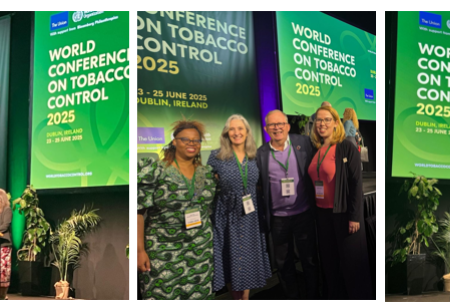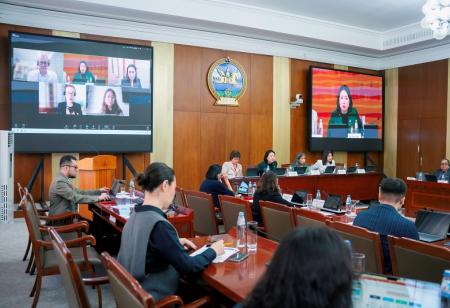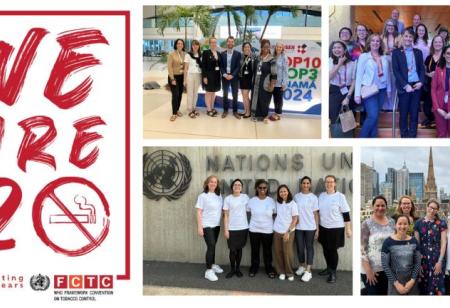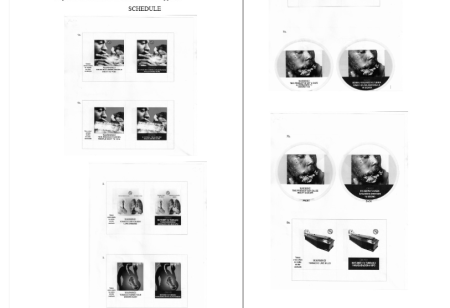
Court upholds Mexico's strict tobacco control law - 19 March 2024
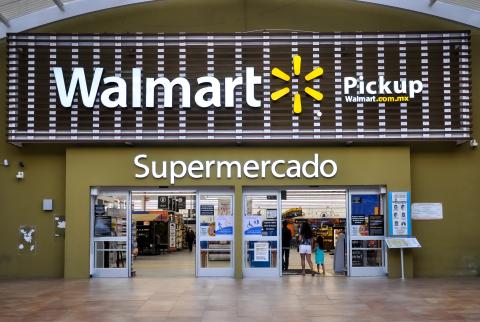
In a significant legal victory for public health, Mexico's Fourth Collegiate Court in Administrative Matters of the First Circuit has upheld the dismissal of an amparo (i.e., constitutional) challenge to the Decree Amending, Adding, and Repealing Several Provisions of the Regulation of the General Law for Tobacco Control (Amended Law).[1]
The challenge was brought by retail corporation Walmart Mexico (Complainant) against Mexico. The Amended Law broadens Mexico's tobacco control law by imposing a total ban on the promotion, advertising and sponsorship of tobacco products, including at point-of-sale, among other things.
The decision is significant as it highlights that Mexico has a responsibility to protect the health of its citizens, particularly that of children and adolescents, even if that means restricting certain business interests. The decision also confirms the importance of Mexico's international obligations under the WHO FCTC, in particular recognising that retail display bans implement article 13 of the WHO FCTC.
The Complainant's challenge to the Amended Law
The Amended Law came into effect on 15 January 2023 and imposes a comprehensive ban on smoking in public areas, including hotels, beaches, parks and sports stadiums, as well as on the promotion, advertising and sponsorship of tobacco products, among other things.
The Complainant sought suspension of the Amended Law so that it could continue operating its business in the same manner as it did before the Amended Law came into effect, which included displaying tobacco products at the point-of-sale. In particular, the Complainant challenged provisions of the Amended Law imposing:
-
visibility requirements on health messages and pictograms on tobacco products and the point-of-sale of cigars;
-
a ban on the advertising, promotion and sponsorship of tobacco products, including brand placement on vehicles, uniforms and equipment used in national sporting competitions; and
-
certain powers on health authorities to verify and enforce compliance with the Amended Law.
The Amended Law is now one of the world's strictest tobacco control laws. It extends Mexico's existing General Law for Tobacco Control, which was passed in 2008 and bans smoking in indoor spaces, such as offices, schools, hospitals and public transportation.
The District Judge's dismissal of the challenge
At first instance, on 19 January 2023, the Seventeenth District Judge in Administrative Matters of the First Circuit refused to suspend the Amended Law as the relevant requirements for granting a suspension in an amparo proceeding were not met (i.e., the granting of the suspension was not necessary to protect public order or social interest).
Further, as Mexico is a party to the WHO FCTC, the District Judge found that Mexico is under an obligation to adopt legislative, executive, administrative and other measures, such as the Amended Law, to reduce the consumption of tobacco products. According to the District Judge, such measures include implementing retail display bans in fulfilment of article 13 of the WHO FCTC.
The District Judge also recognised that, while article 5 of the Mexican Constitution protects the right to freedom of commerce, that right may be restricted by means of government order when the rights of society are affected, as in the case of the Amended Law with respect to the right to health.
The District Judge therefore refused to grant the suspension, noting that society has an interest in protecting children and adolescents from exposure to tobacco smoke, and discouraging the purchase and consumption of tobacco products through promotion, sponsorship and point-of-sale exhibition.
The Complainant's arguments on appeal
On 20 January 2023, the Complainant appealed the District Judge's decision, arguing that it had a sound legal right to commercialise tobacco products, and that the purpose of point-of-sale exhibition is to make consumers aware of information about tobacco products, including the damage caused by tobacco consumption and its secondary effects.
Further, the Complainant contended that the District Judge inaccurately analysed its challenge by deeming that the Amended Law intends to protect people from tobacco smoke and reduce tobacco consumption. Rather, according to the Complainant, the real intention of the challenge was to protect consumers so that they have access to relevant health information before purchasing tobacco products. That is, the aim of its challenge was to protect the right to health by allowing consumers to access health information on tobacco products so that they can decide whether to consume them.
Finally, the Complainant argued that the District Judge's reference to the WHO FCTC overlooked the fact that the Complainant does not promote or advertise tobacco products, nor sponsor tobacco brands.
The Court's decision on appeal
On 27 January 2023, the Court upheld the Amended Law and the District Judge's decision, denying the suspension sought by the Complainant.
In making its decision, the Court held that the Complainant incorrectly contended that the only way consumers can be informed about the harmful effects of smoking is through the point-of-sale display of tobacco products. The Court found that information about the harmful effects of smoking can be disseminated through many other channels, including the media and internet. The Court therefore concluded that the right to health had not been violated in relation to access to health information.
The Court also found that the Complainant's allegation that the District Judge incorrectly based their decision on the WHO FCTC as the Complainant does not promote or advertise tobacco products was groundless. This is because the definitions used in the Amended Law consider the placement of tobacco products on shelves, counters, displays and at point-of-sale, among other areas, to constitute the commercial activities of advertising and promotion.
Other challenges to the Amended Law
Various news sources have reported that thousands of challenges have been brought against the Amended Law, with some successful challenges allowing small businesses to continue displaying tobacco products in their stores.[2] This decision is one of the most high-profile examples of a rejected challenge to the Amended Law, but news sources have also reported that courts have rejected other challenges brought by restaurants and convenience stores.
[1] Nueva Walmart de México v Mexico (Fourth Collegiate Court in Administrative Matters of the First Circuit, Complaint (I-b) 33/2023, 27 January 2023).
[2] María Elena Holguín, ‘Arreciarán amparos contra ley antitabaco durante los próximos días en La Laguna’, El Siglo de Torreón (online, 4 February 2023) <https://www.elsiglodetorreon.com.mx/noticia/2023/arreciaran-amparos-contra-ley-antitabaco-durante-los-proximos-dias-en-la-laguna.html>; Nilsa Hernández, ‘¡Oxxo volverá a exhibir cigarros! Tienda gana amparo contra Ley Antitabaco’, Telediario (online, 21 February 2023) <https://www.telediario.mx/economia/oxxo-gana-amparo-ley-antitaco-volvera-exhibir-cigarros>; Cristopher Delgado, ‘Por qué Oxxo sí podrá exhibir cigarros pese a Ley Antitabaco’, Infobae (online, 21 February 2023) <https://www.infobae.com/mexico/2023/02/22/por-que-oxxo-si-podra-exhibir-cigarros-pese-a-ley-antitabaco/>; Ulises Flores Hernández, ‘Magistrados de CDMX, Nayarit y Durango anularon ley tabaquera; cajetillas podrán seguirse exhibiendo’, Infobae (online, 13 September 2023) <https://www.infobae.com/mexico/2023/09/13/magistrados-de-cdmx-nayarit-y-durango-anularon-ley-tabaquera-cajetillas-podran-seguirse-exhibiendo/>.
***
This blog post has been prepared based on an unofficial translation and publicly available information. While every effort has been made to ensure the accuracy and completeness of the information, we give no guarantee, nor take responsibility for any misinterpretations, errors or omissions. We recommend checking official sources to verify and confirm the information.

